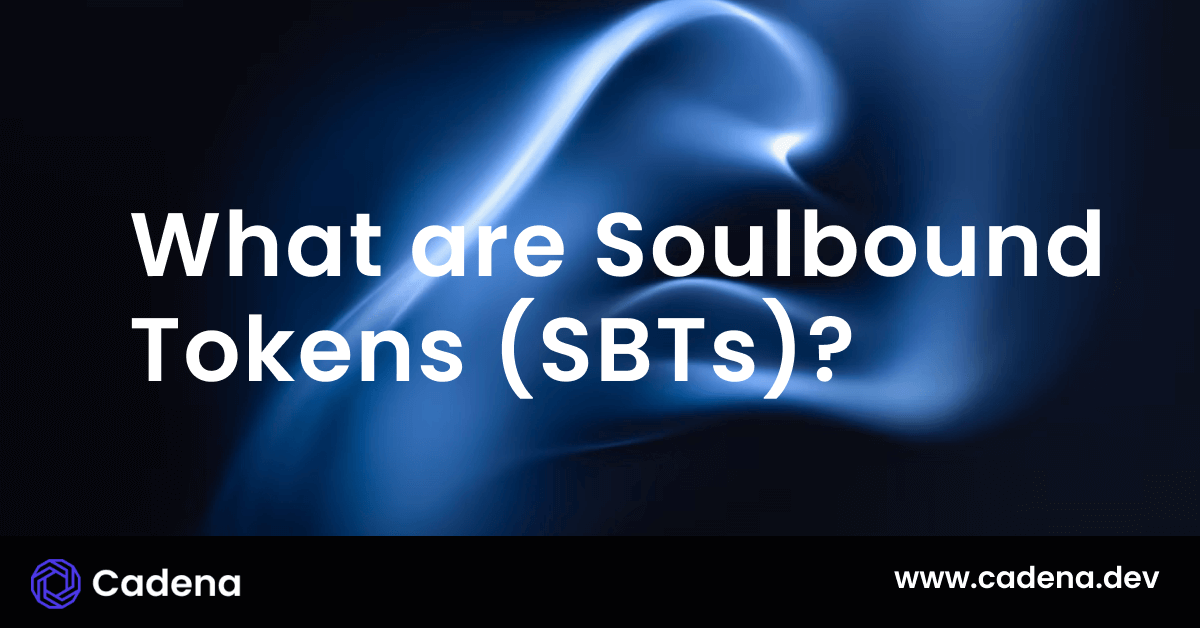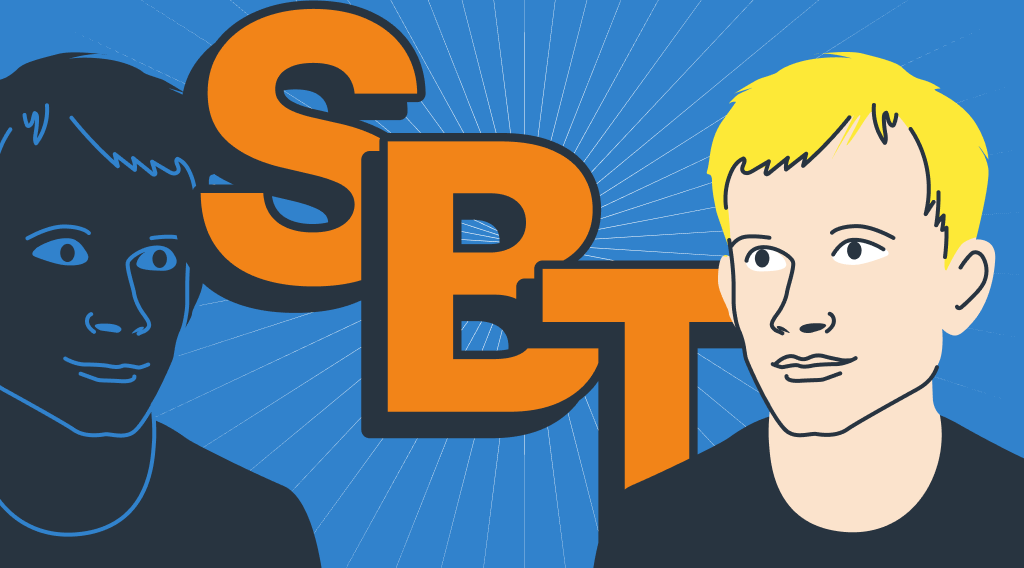“Soulbound Tokens (SBTs): A New Paradigm for Digital Identity and Community
Artikel Terkait Soulbound Tokens (SBTs): A New Paradigm for Digital Identity and Community
- 3D NFTs: The Next Frontier In Digital Collectibles
- Play-to-Earn: Revolutionizing Gaming And Empowering Players
- NFT Staking: A Comprehensive Guide To Earning Passive Income With Your Digital Assets
- The Golden Ticket To The Metaverse: Understanding NFT Whitelists
- Generative Art: Where Code Meets Creativity
Table of Content
Video tentang Soulbound Tokens (SBTs): A New Paradigm for Digital Identity and Community
Soulbound Tokens (SBTs): A New Paradigm for Digital Identity and Community

In the rapidly evolving landscape of blockchain technology, a novel concept has emerged that promises to revolutionize how we represent identity, reputation, and social connections in the digital realm: Soulbound Tokens (SBTs). Proposed by Ethereum co-founder Vitalik Buterin and co-authors in their whitepaper "Decentralized Society: Finding Web3’s Soul," SBTs offer a unique approach to digital identity that moves beyond the limitations of traditional, transferable NFTs and opens up new possibilities for building trust, fostering collaboration, and creating more meaningful online communities.
What are Soulbound Tokens?
Soulbound Tokens are non-transferable, publicly verifiable digital credentials that represent affiliations, commitments, and achievements of an individual or entity. Unlike standard NFTs, SBTs are "bound" to a specific wallet address, known as a "Soul," and cannot be transferred or sold. This non-transferability is the defining characteristic of SBTs and is crucial to their intended purpose.
Think of SBTs as digital badges, diplomas, or membership cards that are permanently linked to your digital identity. They can represent your educational qualifications, work experience, community memberships, artistic creations, or any other verifiable attribute. Because they are non-transferable, SBTs cannot be bought, sold, or faked, making them a reliable representation of your real-world identity and accomplishments.
Key Characteristics of Soulbound Tokens:
- Non-Transferable: This is the core feature of SBTs. Once issued to a Soul, they cannot be transferred to another wallet.
- Publicly Verifiable: SBTs are stored on a blockchain, making them transparent and accessible to anyone. This allows for easy verification of credentials and achievements.
- Bound to a "Soul": SBTs are issued to and held by a specific wallet address, referred to as a "Soul." A Soul represents an individual or entity and serves as a container for their SBTs.
- Potentially Revocable (with limitations): While generally non-transferable, the issuing entity may have the ability to revoke an SBT under specific circumstances (e.g., academic misconduct leading to degree revocation). However, the revocation process should be transparent and governed by predefined rules.
- Potentially Recoverable: Mechanisms for recovering access to a lost or compromised Soul are being explored. This is crucial to prevent permanent loss of identity and credentials.
- Composable: SBTs can be combined and used in conjunction with other SBTs to create more complex representations of identity and reputation.

How do Soulbound Tokens Work?
The functionality of SBTs relies on blockchain technology, specifically smart contracts. Here’s a simplified overview of how they work:

- Creation of a Soul: An individual or entity creates a "Soul" by generating a wallet address. This Soul will serve as the digital identity and repository for their SBTs.
- Issuance of SBTs: Organizations, institutions, or even other individuals can issue SBTs to a Soul. For example, a university can issue an SBT representing a degree earned by a student.
- Storage on the Blockchain: The SBT is recorded on the blockchain, linked to the recipient’s Soul address. The SBT contains information about the issuer, the recipient, and the specific attribute being represented (e.g., degree name, date of graduation).
- Verification: Anyone can verify the authenticity of an SBT by checking the blockchain record. This ensures that the credential is valid and has been issued by a legitimate source.
- Use Cases: The Soul can then use their collection of SBTs to prove their identity, qualifications, or affiliations in various online and offline contexts.

Use Cases for Soulbound Tokens:
The potential applications of SBTs are vast and span across numerous industries and sectors. Here are some key examples:
- Digital Identity and Reputation: SBTs can serve as a foundation for a decentralized digital identity system, allowing individuals to control their own data and reputation. They can represent educational qualifications, work experience, skills, and community affiliations, creating a comprehensive and verifiable digital profile.
- Credential Verification: SBTs can streamline the process of verifying credentials for employment, education, and other purposes. Employers, universities, and other organizations can easily verify the authenticity of a candidate’s qualifications by checking their SBTs.
- Decentralized Governance: SBTs can be used to represent membership in DAOs (Decentralized Autonomous Organizations) and other decentralized communities. They can grant voting rights, access to exclusive content, and other benefits based on an individual’s contributions and affiliations.
- Combating Sybil Attacks: SBTs can help prevent Sybil attacks, where malicious actors create multiple fake identities to manipulate online systems. By requiring users to prove their identity with SBTs, platforms can reduce the risk of fraudulent activity.
- Decentralized Finance (DeFi): SBTs can be used to create more personalized and risk-adjusted DeFi products. For example, a user’s SBTs could be used to assess their creditworthiness and determine their eligibility for loans.
- Healthcare: SBTs can be used to securely store and share medical records, giving patients greater control over their health information. They can also be used to verify the credentials of healthcare professionals.
- Supply Chain Management: SBTs can be used to track the provenance of goods and ensure the authenticity of products. This can help combat counterfeiting and improve transparency in supply chains.
- Gaming and Metaverse: SBTs can represent in-game achievements, character attributes, and membership in guilds or clans. This can create a more immersive and rewarding gaming experience.
- Community Building: SBTs can be used to foster a sense of belonging and shared identity within online communities. They can represent membership, contributions, and achievements, creating a more engaged and collaborative environment.
- Fighting Fake News and Misinformation: SBTs can be used to verify the authenticity of news sources and combat the spread of misinformation. By requiring journalists and news organizations to prove their credentials with SBTs, platforms can help users identify trustworthy sources of information.
Challenges and Considerations:
While SBTs hold immense promise, there are also several challenges and considerations that need to be addressed before they can be widely adopted:
- Privacy Concerns: The public nature of blockchain technology raises privacy concerns. It is important to develop mechanisms to protect sensitive information and ensure that users have control over their data.
- Security Risks: SBTs are vulnerable to security risks, such as hacking and phishing attacks. Robust security measures are needed to protect users’ Souls and prevent unauthorized access to their SBTs.
- Loss of Access: If a user loses access to their Soul, they may lose access to all of their SBTs. Recovery mechanisms are needed to help users regain access to their digital identities.
- Centralization Risks: If a small number of organizations control the issuance of SBTs, this could lead to centralization and censorship. It is important to promote a decentralized and open ecosystem for SBT issuance.
- Social Implications: The use of SBTs could create new forms of social stratification and exclusion. It is important to ensure that SBTs are accessible to everyone and that they are not used to discriminate against certain groups.
- Revocation Policies: Clear and transparent policies are needed for revoking SBTs. The revocation process should be fair and equitable, and users should have the right to appeal decisions.
- Standardization: A lack of standardization could hinder the interoperability of SBTs across different platforms and applications. It is important to develop common standards for SBT issuance and verification.
- Scalability: Blockchain networks need to be able to handle the large volume of transactions that would be generated by widespread adoption of SBTs. Scalability solutions are needed to ensure that the system can handle the load.
The Future of Soulbound Tokens:
Soulbound Tokens represent a significant step forward in the evolution of digital identity and community building. While challenges remain, the potential benefits of SBTs are undeniable. As the technology matures and the ecosystem develops, SBTs are likely to play an increasingly important role in shaping the future of the internet and the way we interact with each other online.
The development of SBTs is still in its early stages, but the potential for innovation is immense. We can expect to see new and creative applications of SBTs emerge in the coming years, as developers and entrepreneurs explore the possibilities of this groundbreaking technology. The future of digital identity and community may very well be bound to the Soul.
